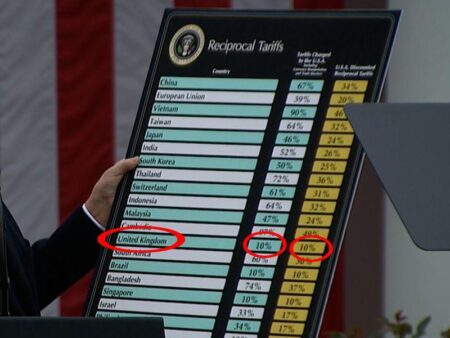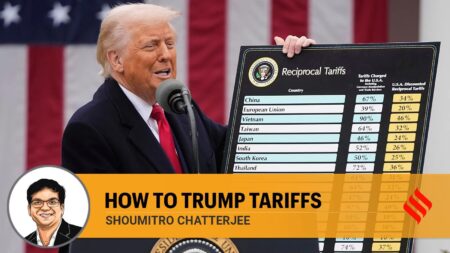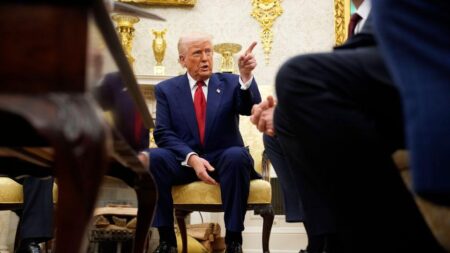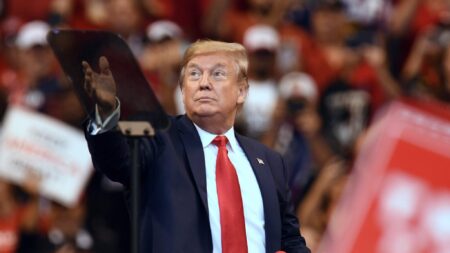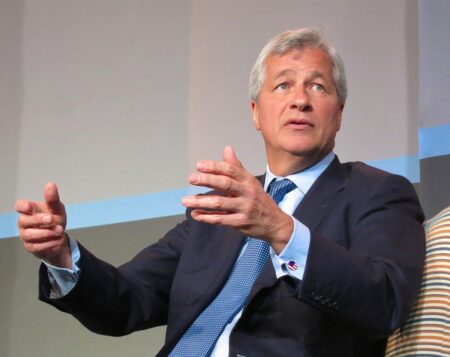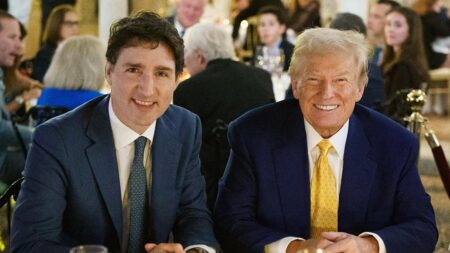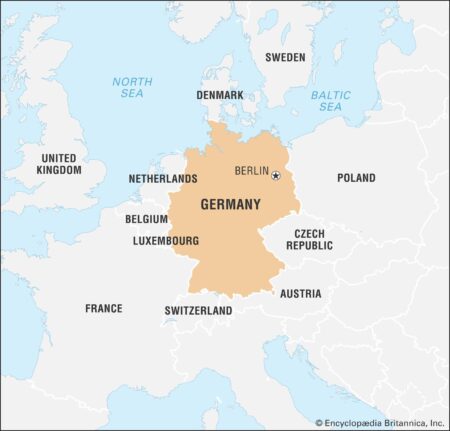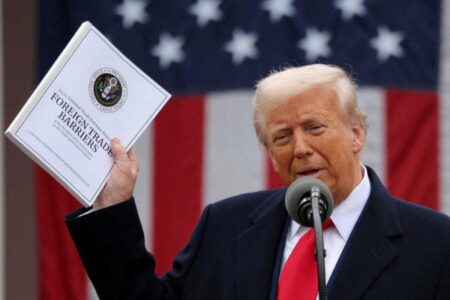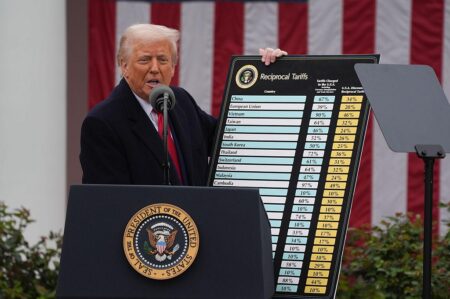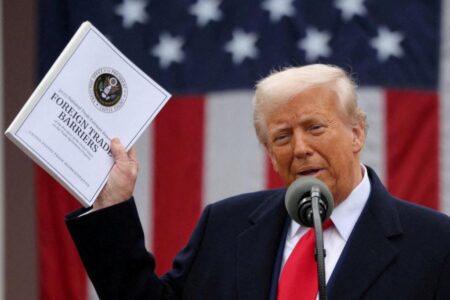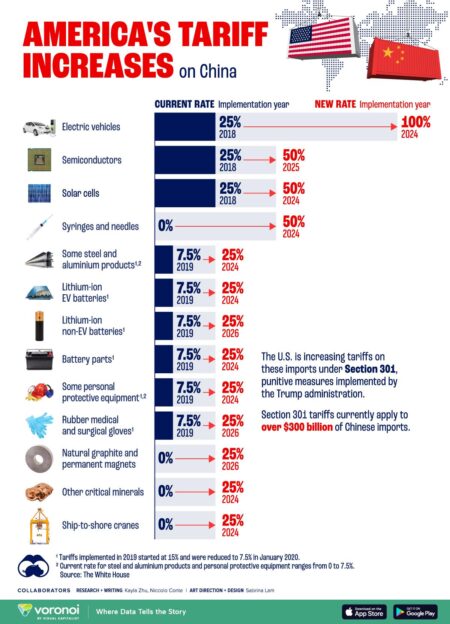As the US-China tariff war escalates, iPhones, Shein apparel, and toys emerge as top-traded items facing potential price hikes. Analysts warn that increased tariffs could burden consumers, reshaping spending habits and impacting the retail landscape.
Browsing: economics
In response to escalating tariffs imposed by the Trump administration, Apple is shifting its production focus to India. This strategic move aims to mitigate supply chain disruptions and reduce reliance on China, demonstrating the company’s adaptability in a volatile trade landscape.
In response to rising tensions over trade, Deputy Prime Minister Richard Marles has affirmed that Australia will not collaborate with China to counter former President Donald Trump’s tariffs. Marles emphasized Australia’s commitment to maintaining its own trade policies.
The Biden administration announced that tariffs on Chinese imports have reached a staggering 145%, a significant escalation in trade tensions between the two nations. This move aims to address ongoing concerns over China’s trade practices and economic policies.
In a surprising move, President Trump announced a temporary pause on escalating tariffs, allowing for a 90-day window for negotiations. However, he simultaneously raised China’s levy to an unprecedented 125%, intensifying ongoing trade tensions.
Japanese stocks are poised for a significant rise following former President Trump’s decision to pause higher tariffs. Investors are optimistic, anticipating a boost in trade relations and economic stability, as markets react positively to this unexpected development.
Italy’s Prime Minister Giorgia Meloni is scheduled to visit the United States next week to discuss ongoing tariff negotiations. This high-stakes meeting aims to address trade tensions and strengthen economic ties between the two nations.
Japan’s former Defense Minister Shigeru Ishiba is advocating for a comprehensive agreement with the U.S. to address tariff issues. As tensions rise over trade policies, Ishiba emphasizes the need for collaboration to secure mutual economic interests.
In a bold economic maneuver, President Trump has initiated sweeping tariffs against China, igniting a trade conflict with implications that could reverberate throughout the global market. Analysts warn this battle may stretch U.S. resources thin, challenging American competitiveness.
As Trump-era tariffs pose a challenge, Argentina is intensifying efforts to secure a trade deal in Washington. Officials aim to bolster economic ties and mitigate potential impacts of U.S. tariffs on Argentine exports, highlighting the urgency of negotiations.
Italy’s Prime Minister Giorgia Meloni is strategically addressing the U.S. tariff challenge, aiming to protect domestic industries while fostering bilateral trade relations. Her administration seeks a balanced approach to mitigate economic impacts and strengthen ties with Washington.
In a stark warning about the economic landscape, finance leaders Jamie Dimon, Larry Fink, and Bill Ackman have expressed concerns over the impact of President Trump’s tariffs. They caution that these trade policies could hinder growth and destabilize markets.
The Trump-era tariffs have disrupted Germany’s economic strategy towards China, particularly under the leadership of Friedrich Merz. As trade tensions escalate, Germany faces challenging decisions to adapt its export policies and maintain competitiveness.
India has imposed new tariffs affecting several sectors, prompting concerns among trade partners. While some nations face repercussions, others brace for retaliatory measures, creating a complex landscape in international trade relations. Stakeholders are watching closely.
In a recent announcement, former President Donald Trump renewed threats of tariffs on Indian pharmaceutical imports, marking a sudden shift that has negatively impacted Indian pharma stocks. Investors reacted swiftly, reversing the brief respite enjoyed by the sector.
Germany and France are advocating for a stronger tariff response to protect their industries from global market fluctuations. Their push reflects growing concerns over international trade practices, aiming to bolster domestic economies amid rising competition.
In the wake of President Trump’s new tariffs, trade dynamics with China and Canada face significant shifts. Analysts predict potential retaliatory measures, which could disrupt supply chains and escalate tensions, impacting economies across multiple sectors.
President Trump’s recent tariffs have surpassed initial expectations, prompting significant economic implications. Key takeaways include heightened consumer prices, strained international relations, potential job losses in key sectors, and unpredictable market reactions.
In a significant trade move, President Trump has announced plans to impose a 24% tariff on imports from Japan, with a minimum 10% tariff affecting all countries. This decision aims to address trade imbalances and protect domestic industries, raising concerns among global trade partners.
In a sweeping move, former President Trump’s new trade order imposes tariffs of at least 54 percent on Chinese imports. This escalation in trade tensions could significantly impact U.S.-China relations and global markets. Stakeholders are bracing for potential economic repercussions.




